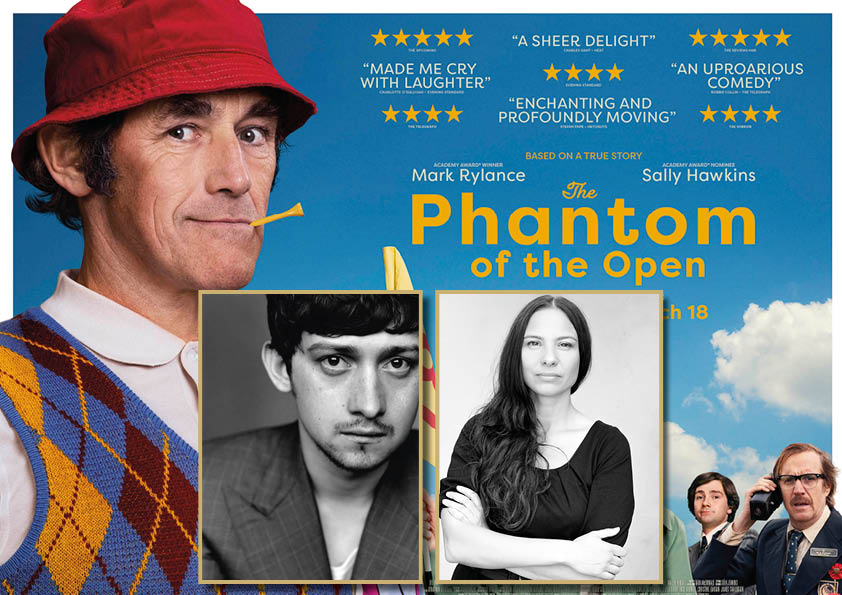The Phantom of the Open – Simon Farnaby – Interview
By Claire Bueno 2 years ago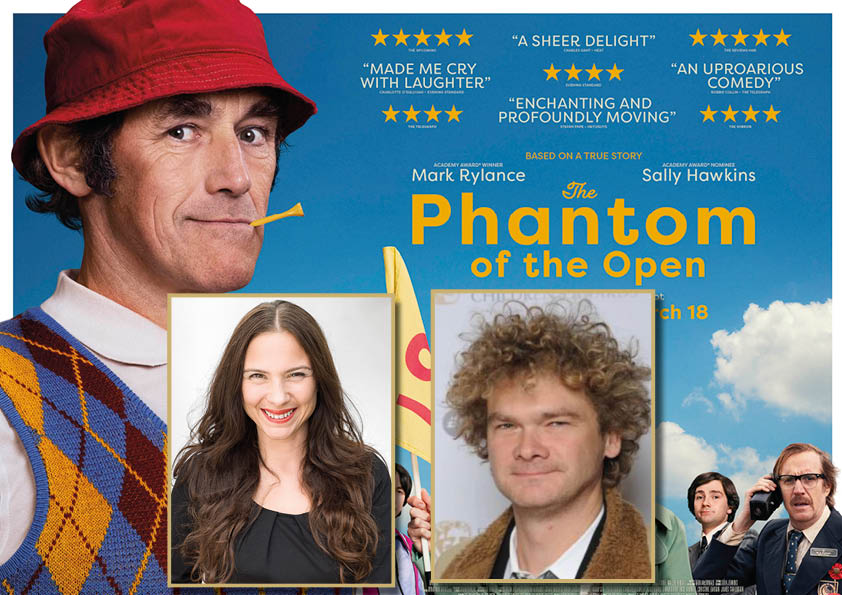
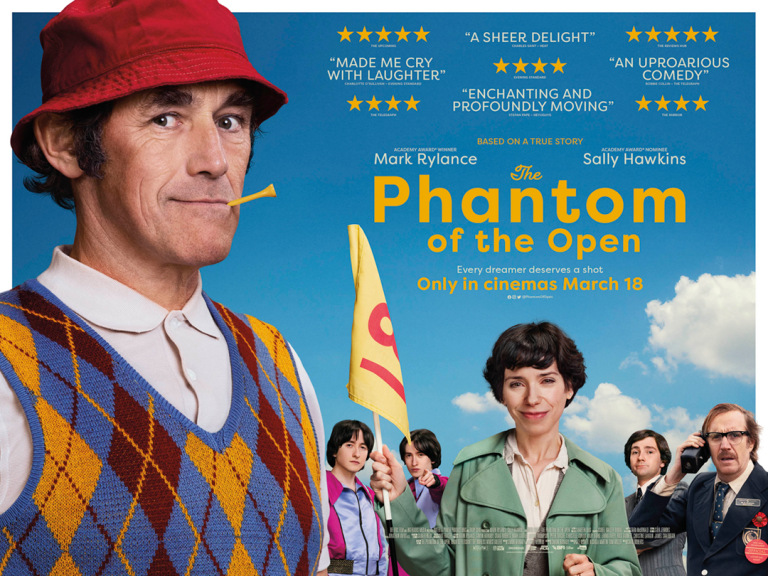
At A Glance
The utterly heart-warming and charming true story of ship yard worker and eternal optimist Maurice Flitcroft, who having never played a round of golf entered British Open Golf Championship Qualifying in 1976 and subsequently shot the worst round in history. A story of love, family and never giving up on your dreams.

Film Details
Directed by Craig Roberts
Written by Simon Farnaby
Released by entertainment One
2022, 106 minutes, Certificate 12A
The Phantom of the Open - in cinemas 18th March
Official Website: entertainment One
Social Media: @PhantomOfOpen #ThePhantomOfTheOpen
Cast
Mark Rylance as Maurice Flitcroft
Sally Hawkins as Jean Flitcroft
Jake Davies as Mike Flitcroft
Christian Lees a Gene Flitcroft
Jonah Lees as James Flitcroft
Simon Farnaby as Golf Competitor
Rhys Ifans as Keith Mackenzie
By Claire Bueno
I’ve had the pleasure of interviewing Simon Farnaby previously as he is the screenwriter for what Hugh Grant termed as a masterpiece, Paddington 2. And I have to agree, I have lost count the amount of times I’ve watched it. And I’m thrilled to say Farnaby again has captured lightening in bottle with his latest screenplay which is brimming with charm and full of heart, Phantom of the Open. It tells the true life story of Barrow-in-Furness ship yard worker Maurice Flitcroft, who dared to dream and compete in the British Golf Open Championship. He fulfilled his dream only to have recorded the worst round in history. But this is a story about a man prepared to fight the odds to go on the journey regardless of the destination and Simon tells me all about it.
It’s such a charming story I can imagine that Maurice is somebody we should be acknowledging and celebrating?
Yeah he was an extraordinary character. I first read about him in the obituaries in 2007 when he had sadly died. But I was amazed he was in all the broadsheets, he was in the Telegraph, The Times and The Guardian and I was surprised that he wasn’t more of a folk hero than he was. I grew up around golf, my dad was a green keeper, so I’d heard of him on the grapevine and he was somebody that if there was a particularly bad golfer in

the club he would be known as a Flitcroft. But he’s not very well known, even to a lot of people who know and love golf. He should be celebrated and the more research I did on him the more impressed I was. He was a guy who was really destined for the shipyard in Barrow, that’s the only job available for someone like him, and he tried everything he could to not end up there. There’s things we didn’t put in that were originally in the film, there were scenes where he’d tried to be a song writer, he wrote songs, he did paintings, he was a high diver. He joined a high diving troupe, he said he could dive when he couldn’t. He used to climb up this diving board and fall off and that’s how he lost all his teeth. But he kept going back to the ship yard because it was the only way to make any money. And then he’d given up on leaving the shipyard until golf came along and he fell in love with golf and he really thought he was good enough to win the British Open, but he wasn’t quite. (Laughs).
And this started as a book primarily, how did you find adapting the book to a screenplay?
Yeah it was an interesting one cos I actually wrote a screenplay before the book and then I realised the screen play was absolute rubbish (laughs). I wrote the book with Scott Murray who is a journalist and it was great that he forced me into…You know I wrote the screenplay just knowing a few bits what I could get off the internet and Scott went, “To do a book we need to know everything.” Then it was great after we’d done the book I had all this armoury to write a proper screenplay. And by then I had learned to write a film and little better, I’d done Paddington 2 and a film called Mindhorn. So armed with all that new information that I didn’t have originally. When you write a screenplay you l just need to hit certain points in a story and they were all there because Maurice’s life was amazing and full of incident, we had a beginning, middle and an end to the story. Finding and ending was hard, but just digging a little deeper we found it, because as you say it’s quite an uplifting film and for a lot of the film you’re going how is this going have a happy ending (laughs). And I think it’s quite surprising the way it does end, it doesn’t end in a way that you might expect, but everyone who’s seen it so far has said it’s very uplifting and has a great message which is go for your dreams, you might not get there, but you might get something else equally as good.
Well it’s not necessarily about the destination, it’s about the journey.
Exactly, yeah, yeah. I couldn’t put it better myself.
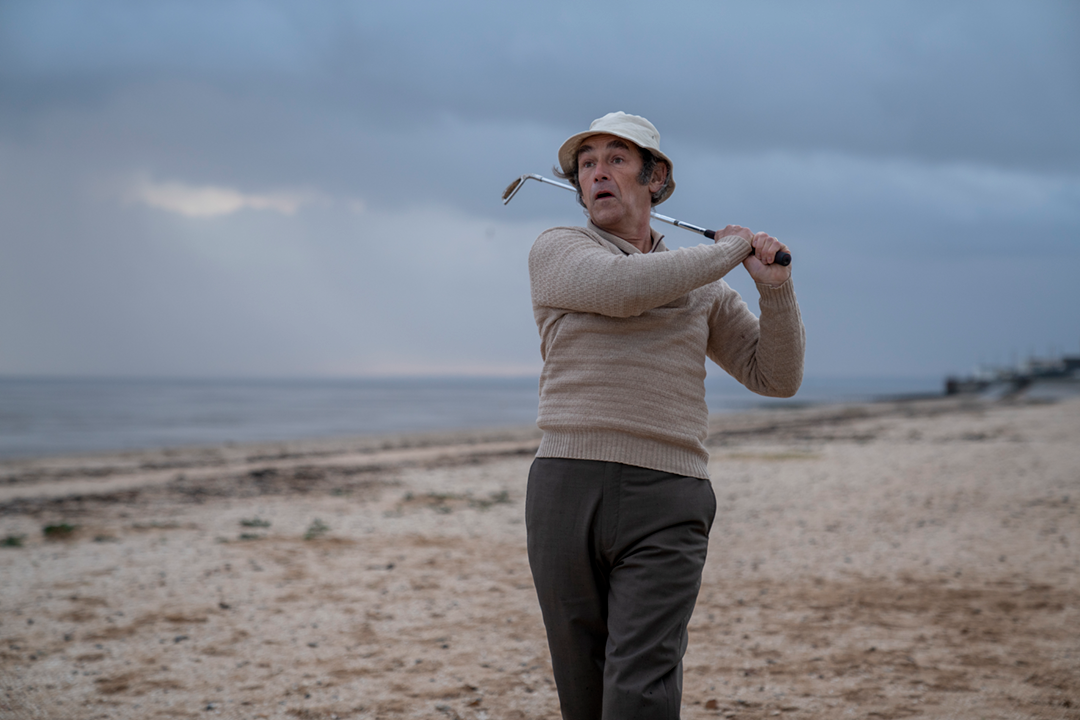
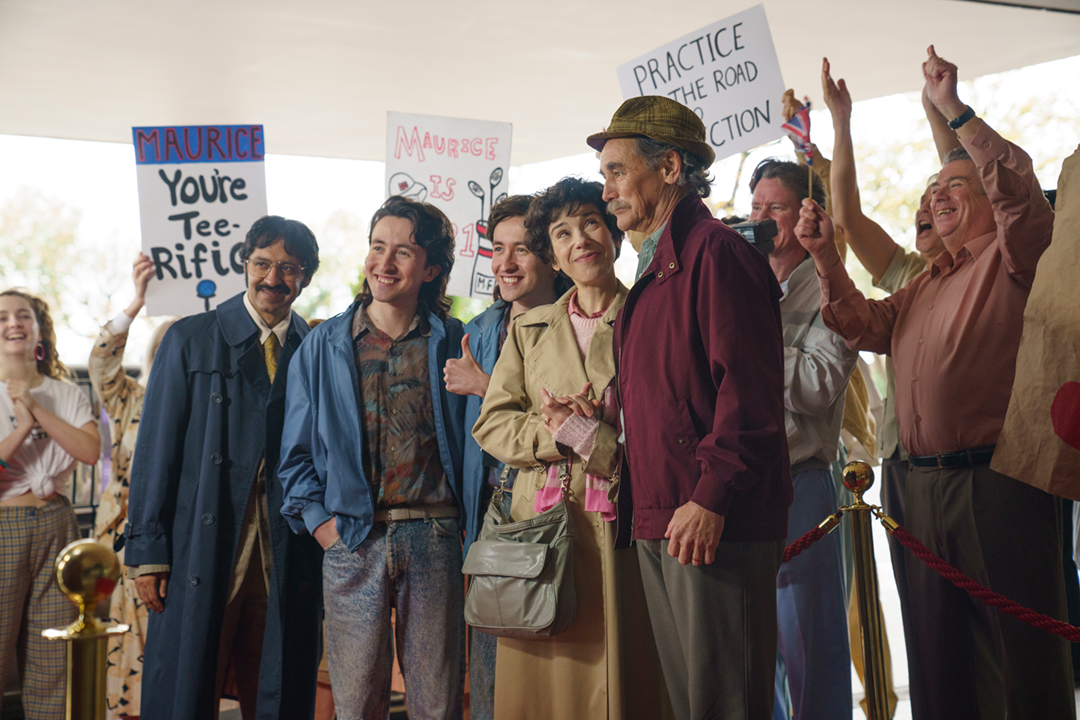
The other thing I really like about the film and pardon the pun here, but Maurice’s golf is driving the story in one respect, however the bigger picture is that there is a cause and effect element to the story. The actions that we all take has a ripple effect. Did you do that by design to increase the scope of the story?
Yeah, because really, it’s not about golf at all. It’s about a family and the more I dug into Maurice’s character and his wife Jean and his son’s and his step son. It’s really a story about a family. So you’re right Maurice’s actions were supported by his wife, because he was doing something that most people would label insane (laughs). He was doing something that was very out of the ordinary. But Jean, his wife stuck by him relentlessly, just refused to give up on him and tell him he was an idiot. His son’s believed in him and Maurice instilled in them his philosophy which was actually right, because they became world disco dancing champions, and so really his philosophy came true for them. And then Mike really represents the rest, the rest of the family because not everyone loved what Maurice was doing, they thought he was mad, they thought they were bringing the Flitcroft name into disrepute. Mike represents that side of the story really, because that had to be told, just telling it from Maurice’s point of view wouldn’t really have told the whole picture.
Well it makes the story much more three dimensional doesn’t really.
Yeah.
And you’re an actor as well, you’re in the film. Do you understand as a screenwriter that when you hand over a script that the actors who are going to play the roles will inhabit, take ownership and change it in a way you hadn’t imagined it, or change the words. Do you have to let it go as the screenwriter once you hand it over?
You do yeah, unless you want to direct yourself which I don’t really and I’ve been really lucky to work with Paul King on the Paddington movies and Craig is amazing, so young, I think he’s still only 30 it’s his third film this one. And Craig was an actor as well and knows how they work. And the way Mark came in and played Maurice was completely different, I think to the way I thought he was going to do it, or someone else would do it, but breathtakingly brilliant and more than I ever would have thought. He gave it so much nuance and six dimensions (laughs). I’d only given him one (laughs). So I have to thank him for that (laughs). And then Sally Hawkins who I know from the Paddington films and who I know brings great pathos and strength as well. She’s only little but she’s got a big power, and she was Maurice’s backbone and strength and I don’t mind handing it over, I’m happy to do that.
“whatever you’re laughing at, you’re laughing at the situation he finds himself in and not him ever.”
And as you say Mark Rylance, those opening scenes there’s this twinkle in his eye and you know we’re gonna be on a good ride with him. You instantly invest, there’s this sense of timing; he just allows it to be.
Yeah he was amazing, I learned a lot watching him because usually when I act I learn my lines and worry I’m getting my lines right. He never worries about that, he inhabits the character, he’s not thinking about his lines because he doesn’t know what he’s gonna say (laughs). And I don’t know what he’s gonna say, or when he’s gonna say it, and he only says things when he feels the character would speak (laughs). So it’s amazing really. Yeah he has a twinkle in his eye. I had a great insight into Maurice, we found his unpublished autobiography like 500 pages, hand written. So that was a gift, but even then nobody really knew what he was thinking, when he was doing what he was doing and Mark liked that. And there was a bit in the film where Mark looks quite sad on what’s happened with 121 and then he smiles and Mark just did that (laughs). And I think he liked that he was ambiguous and nobody really knows what going on in Maurice’s mind. And I loved that as well and I think you leave it to the audience to work out what he was thinking about.
The film is a comedy but you’re definitely not laughing at him, it’s not played for laughs it’s much more naturalistic, can you talk to me a little bit about that. You did it also with Paddington 2 which is one of my favourite films. I so admire your writing and how you bring that subtlety.
Yeah it’s a very different prospect to Paddington 2, I know what you mean about tone and things. Because this is a true story you can’t have buckets falling on people’s heads (laughs), though I tried but Mark Rylance wouldn’t let me. I actually did have a scene where he gets chased, he tries to sneak on the golf course and he gets he gets chased off by the green keeper, and I had him tearing his trousers on a fence and having to take them off and walk home in his pants. And Mark went, “I don’t think we need to do that. Did it happen?” “Erm maybe?” “Let’s not do it.” So really Mark dictated that. No I definitely didn’t want people to laugh at him, I think what he was doing was extraordinary enough and was funny enough. It was that moment of reading his obituary it was like, it made me laugh, but I also had a respect for him and whatever gaps there were in his knowledge of what he should or shouldn’t have been doing, I respected that. I went, here’s a guy who was true to himself, he didn’t necessarily know everything about golf, but then who does?! it’s such a strange sport (laughs). And so there’s a respect there for him that I think carried through the script and whatever you’re laughing at, you’re laughing at the situation he finds himself in and not him ever. And Mark gave him that dignity and that respect, Mark’s great, if he has a clown if you like it’s having great dignity in the worst of circumstances (laughs). Which Maurice found himself in quite often.
Continue to Craig Roberts interview
The Phantom of the Open - Official Trailer
Claire Bueno
Claire Bueno is a film journalist, presenter and interviewer, having moderated BAFTA, Royal Television Society (RTS), Women in Film and Television (WFTV), and Apple Store Q&As and hosted Comic Con panel talks. Claire is the founder of Premiere Scene Magazine and has had the privilege of interviewing esteemed artists including Tom Cruise, George Clooney, Brad Pitt, Sir Anthony Hopkins, Sigourney Weaver, Emily Blunt, Samuel L Jackson, James Cameron and Andy Serkis.
As a media coach Claire works with leading personal publicists, HBO, Netflix, Sky, ITV, Penguin Random House, the BFI, DDA, MacMillan and Premier, offering practical coaching sessions and safe environment for talent to perfect their interview technique before facing the press. She has extensive experience working with emerging and seasoned professionals and where English is not their first language.
Additionally, Claire is the producer of the critically acclaimed feature documentary CLEANIN’ UP THE TOWN: Remembering Ghostbusters and the upcoming TOO HOT TO HANDLE: Remembering Ghostbusters II.

